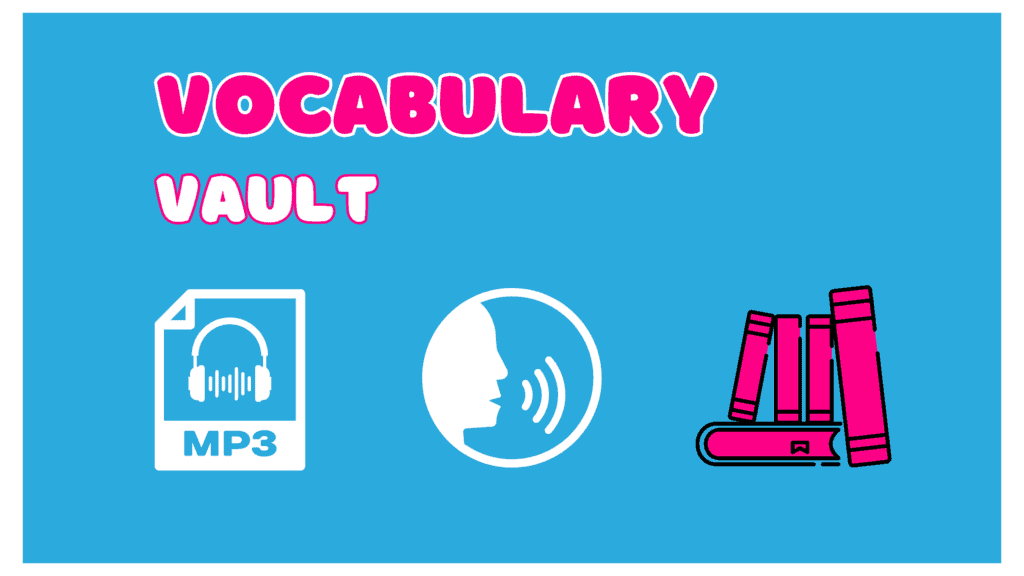IELTS Speaking Lesson about Meetings - Part 2
👇 Take this lesson with you! 👇
Table of Contents
IELTS Speaking vocabulary: Meetings
To meet someone
To have a meeting (formal)
- To meet up (informal – with friends/colleagues)
- To get together (informal – with friends/family, colleagues)
- To have a get-together = family and friends gathering for a dinner / a party
Let’s meet up with your family for a meal on Friday and then we can get together with my family the following day.
- To touch base with someone = to meet and get up to date
- To catch up with someone = to get the latest news
I want to touch base with you about the project deadlines, do you have time today?
If you are organising a meeting at work you can say,
- to hold a meeting
- to call a meeting
- to host a meeting
- to set up a meeting
- to schedule a meeting
- To attend a meeting = to go to a meeting as a participant
What makes a successful meeting?
Here are some ideas on what can make a meeting a successful one:
- Having a well organised and enthusiastic chair (person) – smiling, good mood, good attitude,
- Having a clear and shared agenda (= meeting plan)
- Good organisation
- Having a clear purpose / goal / outcome
- Have a results-oriented approach
- Setting the ground rules (=basic meeting rules)
- Good time management
- Getting everyone involved
- Listening carefully
- Being participative
- Working as a team
- Sticking to the agenda
Find more guidelines and useful language about running an effective meeting here.
- To set an agenda
- To circulate an agenda
- To follow the items on the agenda
- To stick to the agenda = to follow
- To chair a meeting = to organise the discussion
- To take the minutes = to take official notes
- Save your questions to the end
- Chip in with (= contribute) your questions any time
- Chime in with (= contribute) your questions any time

Idioms about meetings
To begin a meeting we can say,
- Let’s get the ball rolling
- Let’s get down to business
- Let’s kick off
To get people ready to start and do some hard work, we can say,
- It’s time to roll up our sleeves
To keep people focussed we can say,
- Don’t beat around the bush, please get to the point.
- Let’s get down to brass tacks.
- To beat around / about the bush = to be indirect
- To go around the houses = to be indirect
- To get to the point =to be direct (in your speech)
- To get down to brass tacks = To get to the important details
When it comes to working as a team we can say,
- Put your heads together = to work together
- Work hand in hand = to collaborate
- Two heads are better than one = more people, more ideas
To end a meeting we can say,
- Let’s wind up here
- Let’s wrap up the meeting
- Let’s call it a day.
IELTS Speaking: How to describe meetings
Adjectives to describe meetings
When a meeting is good and with a positive outcome, we often say,
- Successful
- Valuable
- Fruitful
- Productive
- Constructive
When a meeting doesn’t go well and doesn’t have a good outcome, we often say,
- Pointless = without meaning
- Fruitless = no result
- Difficult = hard work and no clear result (maybe due to personality clashes, disagreements)
- Inconclusive = no conclusion
Pronunciation Files For Vocabulary From My Best Live Lessons
Use Words EASILY in English Conversations!
More Free Lessons
If you liked this lesson about music in IELTS Speaking, leave a comment below!
There are more lessons you can follow in the links below too.
MUSIC in IELTS Speaking. Useful collocations and vocabulary to help you discuss about music.
JOBS in IELTS Speaking Vocabulary you need to answer questions in Part 1, 2 and 3 for the topic of jobs
FEELINGS in IELTS Speaking Vocabulary you need to describe a range of different feelings, as well as talking about topical issues such as mental health.
COMPUTERS in IELTS Speaking Describe the uses and challenges of computers using powerful vocabulary and idioms.

